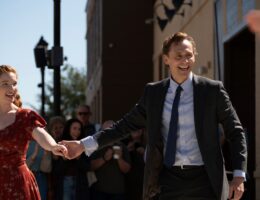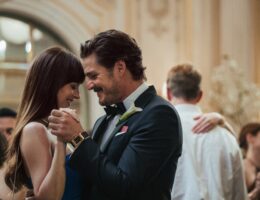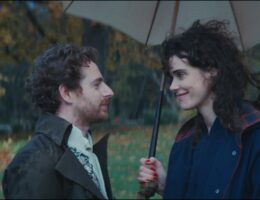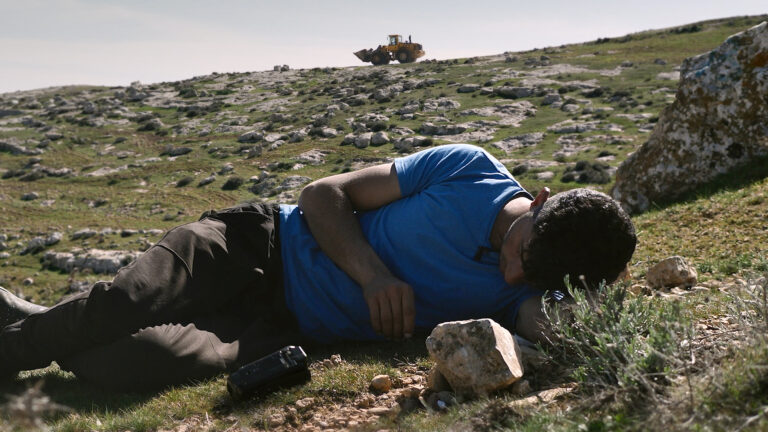No Other Land (2024 | Palestine, Norway | 95 minutes | Basel Adra, Hamdan Ballal, Yuval Abraham, Rachel Szor)
For his entire life, second-generation Palestinian activist Basel Adra has lived under threat of the permanent erasure of his small West Bank village in the Masafer Yatta region by the Israeli military. Declared a region of importance for training, the series of small cliffside villages has suffered multiple generations of destruction and resistance. Slowed by legal actions and the fortuitous but brief visit by then British Prime Minister Tony Blair, the region clung to its identity and right to exist for decades. The child of activists, Adra grew up in this milieu of struggle, learned from their experience, and earned a law degree that is all-but useless to him in his homeland.
When a long-unsettled court case halting (or rather, slowing) these destructive incursions was resolved after decades of procedure-related delay, a coalition of Palestinian and Israeli journalists and activists began filming. With decades of archival footage of his father’s efforts in the resistance at their disposal, they brought fresh eyes to the re-invigorated conflict. Over a four year period from 2019 to 2023 (with filmmaking wrapping just days before the outbreak of the war in Gaza) the film documents in close, ground-level perspective the senseless destruction of homes and schools, the constant displacement of families, and the enduring determination of residents to preserve their territorial rights by going so far as retreating to living in well-appointed caves.
Urgent handheld camerawork follows Basel’s tireless efforts to vigilantly rush to document the military’s persistent intrusions and harassment, often at great risk to himself. The film shows their protests as heavy construction equipment persistently reduces communities to rubble, one day, makeshift school, or household at a time. They displace citizens rendered paralyzed by the conflict, tear down the walls of beloved community, and make life slowly and persistently miserable and less certain with beuqacratic disregard. It is a parade of senseless, crushing, and persistent cruel indifference which demands witness.
But most piercingly, the film also captures the heartrending moments of a burgeoning friendship between Basel and Yuval Abraham, a similarly young Israeli journalist who aims to bring wider attention to the crisis. The film is admittedly challenging to watch, but their relationship and perspectives as the years stretch out elevates the project beyond a dire documentary to a truly special glimpse into the multifaceted lives of people on the ground.
In a way, it’s a love story, albeit of the bromantic variety, and I found myself holding my breath through each of their interactions. The young men have shared goals and ideologies, but through conversations and observations we come to understand how vastly different their rights and privileges in a segregated society. In rare quiet moments, late into chilly nights, over dinners, or on long car rides on the segregated highways connecting Hebron and the West Bank, their candid talks embrace their humanity, revealing varying degrees of skepticism and optimism about their personal and political futures. Their conversations are so poignant and the outlook so dire that I could barely make it through writing this blurb without bursting into tears. It’s the best kind of urgent filmmaking for the worst reasons; one that demands and rewards clear-eyed attention. Over 95 tightly constructed minutes, this shatteringly essential film will make you so angry you’ll want to throw rocks.
No Other Land plays at SIFF Film Center starting this weekend.




